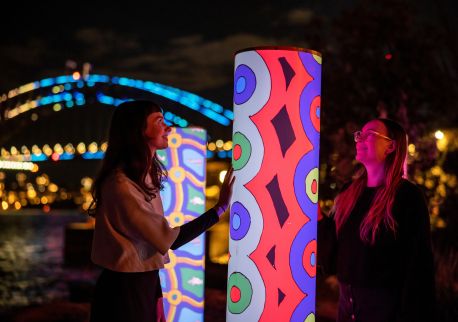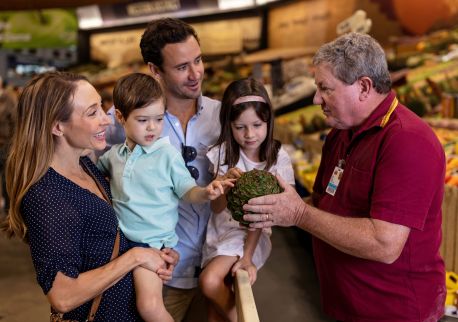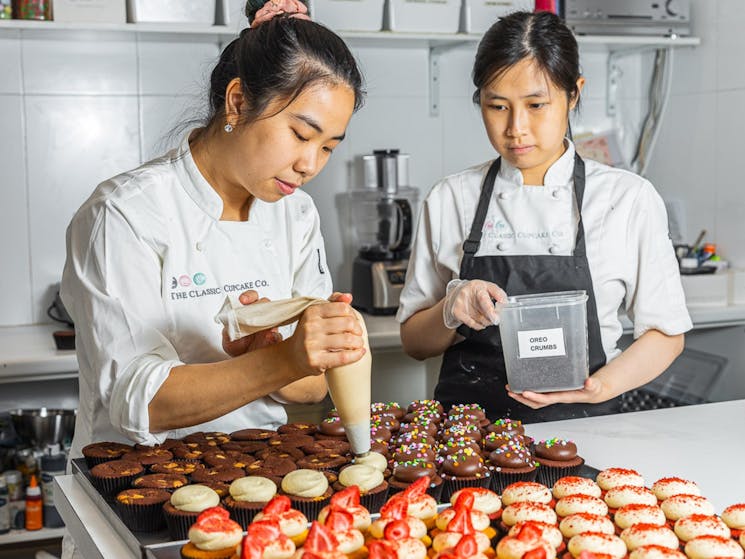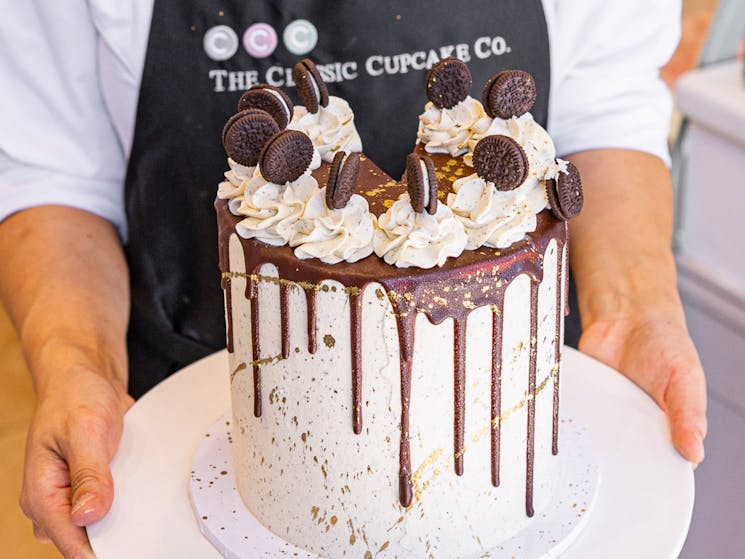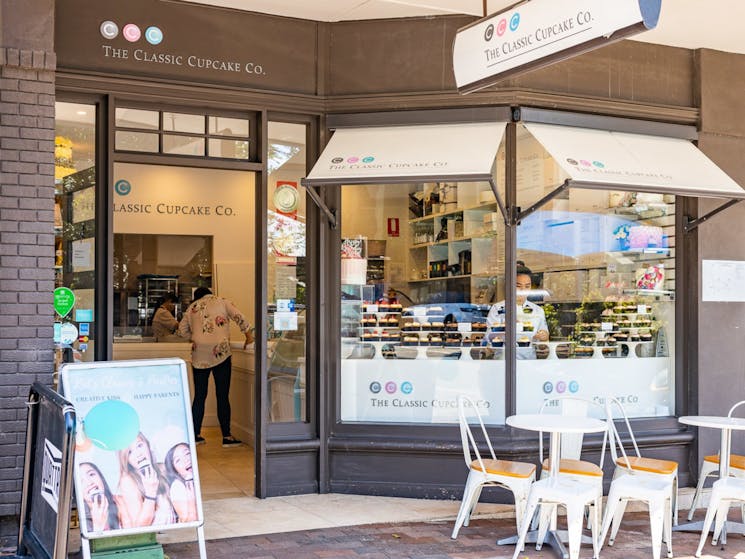The Classic Cupcake Co
Overview
The mission of The Classic Cupcake Co. is to provide customers with the finest sweet treats in Australia.
Owner, founder and chief flavour designer, Anna Eden, arrived in Sydney from England with her family in 2010. After years of planning and delivering major events for corporate clients, A-List celebrities and members of the Royal Family, Anna began looking for an opportunity to take her creativity, attention to detail and her background in cutting-edge culinary techniques in a brand-new direction. Coming from a family where cooking was in the blood she began The Classic Cupcake Co. in 2012.
Through constant innovation and hard work, they design new products every season earning prestigious awards for the cupcakes, cakes and classes!
The establishment prides itself on using only the finest ingredients: locally sourced free range eggs, organic vanilla, pure butter and the world’s most exquisite chocolate – Callebaut, made from sustainably grown cocoa beans by the maitre chocolatiers of Belgium.
Modern. Delicious. Doily-free.
Accessibility
A quiet space is available at the venue/ facility
Allows a person's carer free entry into participating venues and events
Actively welcomes people with access needs.
Adhere to The Food Authority requirements for allergy management in food preparation
Advise tour guides of the access needs of guests at the time of booking (includes pick up and drop off requirements)
Ask all visitors if there are any specific needs to be met
Caters for people who use a wheelchair.
Caters for people with allergies and intolerances.
Caters for people with sufficient mobility to climb a few steps but who would benefit from fixtures to aid balance. (This includes people using walking frames and mobility aids)
Employ people with disability
Have a step free main entrance to the building and/or reception area (includes ramps or slopes with a maximum gradient of 1:14, otherwise are too steep for wheelchairs)
Have accessibility information and photos, including of a bathroom, room and/or floor plan on your website (can be emailed on request)
Have accessible seating areas in theatrette
Have doorways which are easy to open and have lever handles (doorways 850mm or wider when open and not heavy)
Have equipment to respond to anaphylactic shock such as epi–pens and defibrillator
Have grab rails in the bathroom
Have step free access to restaurant, lounge and bar
Have step free access to the conference or function room
Have step free outdoor pathways (includes picnic areas, barbecues and shelters)
Modify your cooking and cleaning practices to cater for people with food allergies or chemical intolerances (could include menus with meals free from: nuts, dairy, seafood, eggs, gluten etc)
Offer a range of contact methods for receiving complaints
Offer multiple options for booking - web, email, phone
Provide assistance with booking arrangements (includes providing clear itineraries with written instructions on what to do at various destinations)
Provide linen that is chemical and fragrance free (if requested)
Provide seating in common areas including reception area
Provide toiletries which are chemical and fragrance free (if requested)
Train your staff in communicating with people with learning or behavioural challenges
Train your staff in disability awareness
Train your staff to respond to allergic reactions
Use floors/coverings which are slip resistant, firm and smooth
Use non-slip tiles in the bathroom or slip resistant matting
Use organic (chemical and fragrance free) cleaning products
Use organic (chemical and fragrance free) deodorisers in public areas and rooms
Use Plain English / easy read signage and information (includes menus and emergency information)
Website meets WCAG 2.0 accessibility standards
Welcomes and assists people who have challenges with learning, communication, understanding and behaviour. (includes people with autism, intellectual disability, Down syndrome, acquired brain injury (ABI), dyslexia and dementia)








